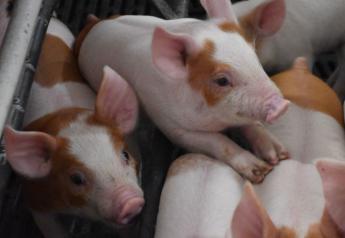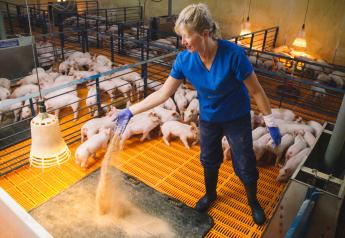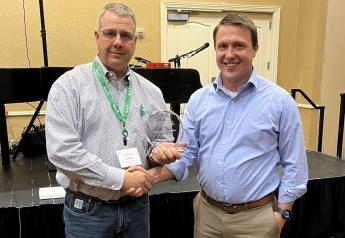Scientists Bring Brain Cells from Dead Pigs Back to Life

Is it possible to be partly alive? Or, for "Princess Bride" fans, mostly dead?
A new study released Wednesday raises profound questions about life and death. Researchers at Yale have restored some cellular activity to brains removed from slaughtered pigs.
Their findings demonstrate that under appropriate conditions, the isolated, intact large mammalian brain possesses an underappreciated capacity for restoration after death, the article published in the journal Nature said.
Although the brains did not regain consciousness, in an experimental treatment, blood vessels in the pigs’ brains began functioning, flowing with a blood substitute, and certain brain cells regained metabolic activity, even responding to drugs, The New York Times reported. They also discovered electrical activity in some neurons.
This preliminary work has no immediate implications for treatment of brain injuries in people, but the discovery that parts of the brain may be recoverable after death contradicts medical science and raises many questions.
“We had clear lines between ‘this is alive’ and ‘this is dead,’” said Nita A. Farahany, a bioethicist and law professor at Duke University. “How do we now think about this middle category of ‘partly alive’? We didn’t think it could exist.”
Until now, science assumed that the brain declines quickly when its blood supply is cut off. Cut off from oxygen and a blood supply, the brain’s electrical activity and signs of awareness disappear within seconds, while energy stores are depleted within minutes. Current understanding maintains that a cascade of injury and death molecules are then activated leading to widespread, irreversible degeneration, a Yale news release said.
Scientists removed the brains of 32 slaughtered pigs from a meatpacking facility that had been without blood and sitting at room temperature for four hours.
Using a system the team developed called BrainEx, they pumped an experimental solution into the brain for six hours. This solution provided oxygen to the tissue and allowed scientists to track its flow. It also contained chemicals intended to block nerve signals. Scientists reasoned that brain cells might be better preserved and metabolisms more easily restarted if the cells were not active.
Scientists also examined brains that did not receive the BrainEx infusions and those receiving infusions of a dummy substance. Brains in both groups showed no signs of activity, and their cells deteriorated.
“Restoration of consciousness was never a goal of this research,” said co-author Stephen Latham, director of Yale’s Interdisciplinary Center for Bioethics. “The researchers were prepared to intervene with the use of anesthetics and temperature-reduction to stop organized global electrical activity if it were to emerge. Everyone agreed in advance that experiments involving revived global activity couldn’t go forward without clear ethical standards and institutional oversight mechanisms.”
The scientists believe the technology could help point the way to new treatments for strokes, traumatic brain injuries and diseases like Alzheimer’s.
Although the research brings up many questions, it also provides potential implications for future research capabilities.
The research was primarily funded by the National Institutes of Health’s (NIH) BRAIN Initiative.
More from Farm Journal's PORK:
Pigs Used in Stroke Monitoring Research
Neurons Survive Long-Term in Pigs with Spinal Cord Injuries
Swine Cough Monitoring Technology Offers Early Detection and Treatment







